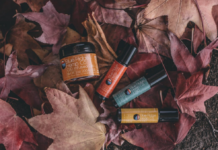CBD, or cannabidiol, has gained attention among fitness enthusiasts and athletes for its potential benefits in enhancing exercise performance and supporting post-workout recovery. As more people seek natural supplements to optimize their fitness routines, CBD emerges as a promising option due to its interaction with the endocannabinoid system (ECS) and its influence on various physiological processes relevant to physical activity.
Enhancing Exercise Performance:
CBD may contribute to improved exercise performance through several mechanisms. One significant way CBD supports physical activity is by reducing inflammation. During intense exercise, the body undergoes oxidative stress and inflammation, leading to muscle soreness and fatigue. CBD interacts with ECS receptors, particularly CB2 receptors found in immune cells and muscle tissue, to modulate inflammatory responses. By reducing inflammation, CBD may help alleviate muscle soreness and stiffness, allowing individuals to recover faster between workouts and maintain peak performance.
Moreover, CBD’s analgesic properties can provide pain relief without the side effects associated with traditional pain medications. This can be particularly beneficial for athletes managing chronic pain conditions or discomfort from training injuries, enabling them to continue training without interruptions.
CBD’s ability to promote relaxation and reduce anxiety may also contribute to improved exercise performance. Pre-workout anxiety or nervousness can impair focus and coordination, affecting overall performance. By interacting with serotonin receptors in the brain, CBD may help alleviate performance-related anxiety and promote a calm, focused mindset conducive to achieving fitness goals.
Supporting Post-Workout Recovery:
Recovery is crucial for optimizing gains from exercise and minimizing the risk of injury. CBD’s anti-inflammatory properties play a pivotal role in post-workout recovery by reducing inflammation in muscles and joints. This can accelerate the healing process and alleviate soreness, allowing individuals to recover faster and resume training more effectively.
Additionally, CBD’s antioxidant properties help combat oxidative stress induced by intense physical activity. Exercise generates free radicals that can damage cells and tissues, contributing to muscle fatigue and delayed recovery. CBD’s antioxidant effects neutralize free radicals, protecting cells from oxidative damage and supporting overall recovery and cellular health.
CBD may also promote better sleep quality, which is essential for recovery and muscle repair. By interacting with ECS receptors involved in regulating sleep-wake cycles, CBD can help individuals achieve deeper and more restorative sleep. This allows the body to repair and rebuild muscles, replenish energy stores, and optimize recovery processes during sleep.
Practical Considerations and Usage:
CBD is available in various forms that cater to individual preferences and fitness routines. CBD oils and tinctures are popular choices for pre-workout use, as they allow for quick absorption into the bloodstream and provide rapid onset of effects. They can be taken sublingually (under the tongue) or added to beverages for convenient consumption before exercise.
For post-workout recovery, CBD-infused topical products such as creams and balms are effective for targeting specific areas of soreness or inflammation. These products are applied directly to the skin, where CBD interacts with cannabinoid receptors in underlying tissues, providing localized relief and promoting muscle recovery.
CBD capsules and softgels offer a convenient and precise dosing method, making them suitable for maintaining consistent CBD levels throughout the day. They are ideal for individuals seeking long-lasting effects to support recovery and overall physical well-being.
When incorporating CBD into an exercise regimen, it’s essential to choose high-quality products from reputable manufacturers. Look for CBD products that undergo third-party testing to verify potency, purity, and absence of contaminants. Start with a low dose and gradually increase as needed to achieve desired effects while monitoring personal response and adjusting dosage accordingly.
Conclusion:
CBD represents a natural and versatile option for enhancing exercise performance and supporting post-workout recovery. By leveraging its anti-inflammatory, analgesic, antioxidant, and anxiolytic properties, CBD can help athletes and fitness enthusiasts optimize their training routines, manage pain and inflammation, and promote overall physical well-being. Integrating CBD into a comprehensive approach to fitness and wellness, alongside proper nutrition, hydration, and adequate rest, can empower individuals to achieve their fitness goals and maintain peak performance over time. As research continues to explore CBD’s effects on exercise physiology and recovery, it holds promise as a valuable tool for enhancing athletic performance and improving overall fitness outcomes.















